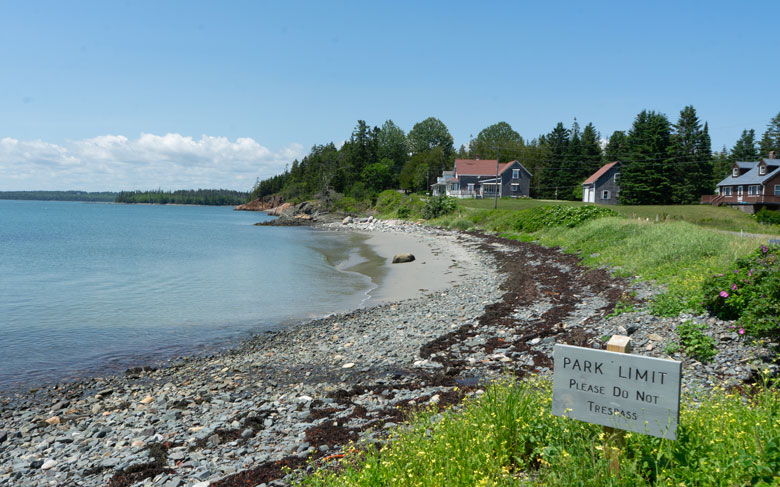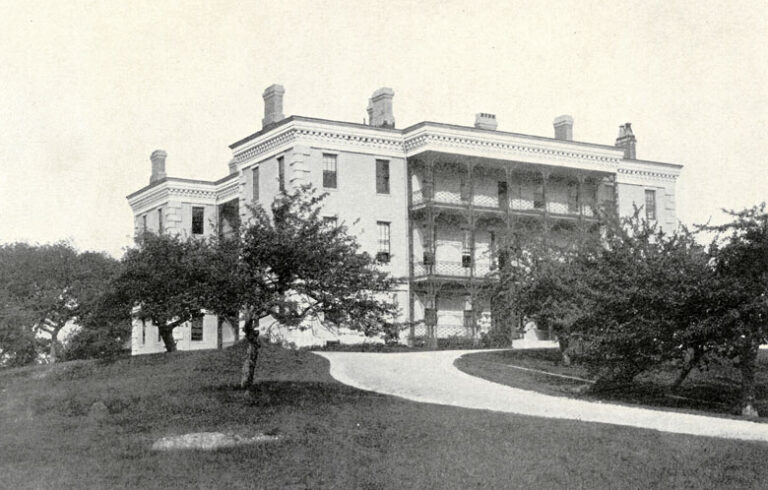At a time when the working waterfront faces converging external threats like never before—increased property values along the coast, rising seas, and a changing ecology—those who rely on the sea and, by extension, the intertidal lands, must be adaptable to sustain their business and their livelihoods.
The biggest threat to adaptability is uncertainty, and under current Maine law, uncertainty pervades. We are working to change that.
In the words of former Chief Justice Saufley, under current Maine law, a member of the public is “allowed to stroll along the wet sands of Maine’s intertidal zone holding a gun or a fishing rod, but not holding the hand of a child.”
Rather than seeking a decision by the Maine Supreme Court that a specific activity should be allowed, we are attacking the very heart of the problem…
Why? Because in 1986, the Maine Supreme Court held, in Bell v. Town of Wells, that by virtue of the 1641-1647 Colonial Ordinance, title to intertidal lands is held by the upland owner, subject only to the public’s right to use the intertidal zone for fishing, fowling, and navigation.
What is fishing, fowling, and navigation? Courts look at each activity on an individual basis, leaving people who rely on access to the shore in a position of uncertainty.
Walking, running, and general beach-going may be the examples that jump most readily to mind, but what about the working waterfront? Can you access the intertidal zone to support your own livelihood?
In 2011, in a case which involved a commercial scuba diving business that took clients on shore dives in Passamaquoddy Bay, the Maine Supreme Court held that the public has the right to walk across the intertidal lands to enter the water and scuba dive. However, in 2019, the Court held that harvesting rockweed was not a right the public held in the intertidal lands.
Recognizing the need for certainty, in 1985 the Maine Legislature tried to solve this problem. The Public Trust in Intertidal Land Act provided that the intertidal lands could be used by the public for fishing, fowling, navigation, recreation, and “[a]ny other trust rights to use intertidal land recognized by the Maine common law.”
Only four years later, in Bell II, the Maine Supreme Court held that the act was unconstitutional.
Thirty-five years later, we find ourselves wrestling with the same questions. The Maine Supreme Court has heard a number of cases since the Bell decisions, each of them addressing a specific activity or circumstance. Each time the Court declines to overrule Bell and instead tells Mainers whether that specific activity falls into the public trust rights.
But what if “fishing, fowling, and navigation” was never intended to be so restrictive? What if the long-abandoned Colonial Ordinance was only ever intended to preserve the public’s right to use the intertidal land in a way that balances the upland owners’ interests in accessing the sea with those same interests shared by the public? That is what we will be arguing at the Maine Supreme Court in the latest case in this long running saga.
Rather than seeking a decision by the Maine Supreme Court that a specific activity should be allowed, we are attacking the very heart of the problem in a way that has not been directly attempted since the Bell decisions.
The Colonial Ordinance expired by its own terms prior to Maine statehood. Though its mandate lives on in the common law, the common law is intended to be fluid and adaptable, adjusting to the society it serves. The Court has acknowledged that reality in the context of the Colonial Ordinance before, yet the law remains—for now.
You can follow this case, Peter Masucci et al. v. Judy’s Moody, LLC, et al., at ourbeaches.me, or on the Court’s website at courts.maine.gov/news/high-profile.html.
This case isn’t about fishing, fowling, and navigation; it’s about certainty in public rights—it’s about your rights to access and enjoy the intertidal lands.
Richard Qualey is an attorney at Archipelago in Portland and represents the plaintiffs in this pending matter.





